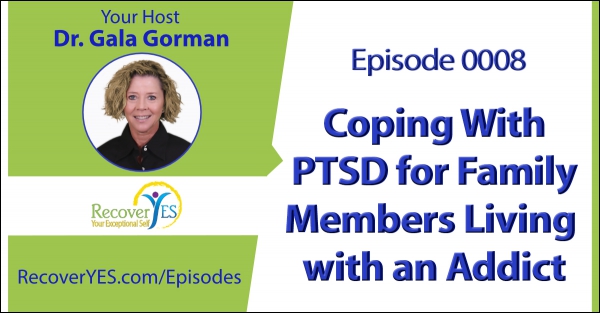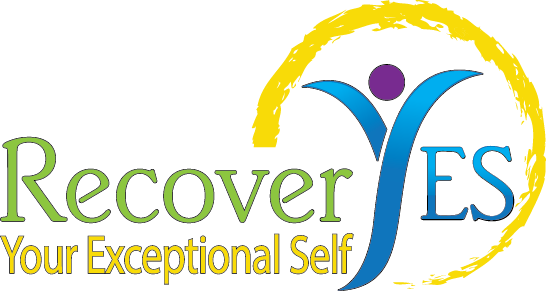How to Deal with an Addict in the Family – Coping with PTSD and Addiction in your Home
In this episode of Recovery ReLOVution, the host, Dr. Gala Gorman, discusses the relatipnship between trauma and relapse, especially why so many addicts relapse. In order to understand relapse, we really need to understand trauma … where it comes from and how it works because it’s often the root cause of the problem. Trauma happens in so many different ways and the effects of trauma are painful. To deal with an addict in your family that is trying to cope with PTSD, you are going to need some help.

The host of Recovery ReLOVution, Dr. Gala Gorman, advises loved ones of addicts on the effects of trauma … especially the relationship between trauma and relapse.
Gorman offers, “Why do so many addicts relapse? For anyone that is not struggling with addiction, it makes no sense. But, since addiction is medicating some problem, in order to recover, the addict is going to have to find another form of medication that is equally effective. Easier said than done. That’s why they so often relapse. We suggest a different approach. Get to the underlying cause and treat the symptoms. In most cases, those symptoms include trauma. To deal with an addict in your family that is trying to cope with PTSD, you are going to need some help.”
In this episode, listeners will:
- Understand the effects of trauma on their mind and bodyGorman refers to an article in the Indy Star that discussed drug overdoses. In particular, how people who have overdosed are treated in the hospital. Typically, when somebody overdoses they are taken to the hospital. If they revive fairly quickly, they just get up and walk out. There is no treatment, counseling, or anything to keep the addict from going right back to the street and repeating whatever it was that landed them in the hospital in the first place.
The Indy Star article references a new program focused on reaching drug users at a time they are most vulnerable, which is right after their habit has almost cost them their lives. “Thanks to a two-year $700,000 grant from the Richard M. Fairbanks Foundation, this program is expanding its scope. The money is going to allow the program to hire peer recovery coaches to provide one-on-one mentoring and pay for rapid hepatitis C testing.”
Krista Brucker, who is one of the founders of Project Point that is funded by this foundation, says, “Before Project Point, nothing would happen at that time. They don’t need much in the way of acute medical treatment if they’re stable, awake and talking to you. The question comes in what have we really done to intervene for the long-term in the course of the disease.”
As Gorman points out, “This addiction recovery mentoring (with recovery coaches) is there to help the addict see that there are alternatives and to try to get them into some sort of formal treatment at a time when they may be open to considering it. These things are happening in different communities across the country. They are programs that you can utilize, spread the word about, and lend your support to.”
The Recovery ReLOVution show was created with the aim in mind to help family and friends of addicts restore peace and sanity to their world. Listeners now have an alternative to doing the same thing expecting a different result … the definition of insanity.
The show urges listeners to stretch themselves. The show’s tagline reflects this. Love the Addict. Outsmart the Addiction. Listeners, primarily Recovery Stakeholders, will likely find a particular interest since it’s difficult to avoid shaming their addict loved one.
When asked why she created the show, Gorman said, “Shaming just adds fuel to addiction’s fire. There is an alternative.”
The show’s host, Dr. Gala Gorman, is a holistic life coach and minister. She is the author of the Spiritual Approach TM Series of books focused on practical spirituality. As an entrepreneur … mediator, publisher and, formerly, accounting firm partner, her experiences helped shape the creation of the show. As a change facilitator, she ignites transformation in businesses, families, students, clients and, especially, within herself.
Gorman has hopes that the show will help Recovery Stakeholders learn to set and hold effective boundaries to ignite positive change … in themselves and their loved one who is struggling with addiction.
Those interested in learning more about the show can visit here: RecoverYES.com/Episodes


